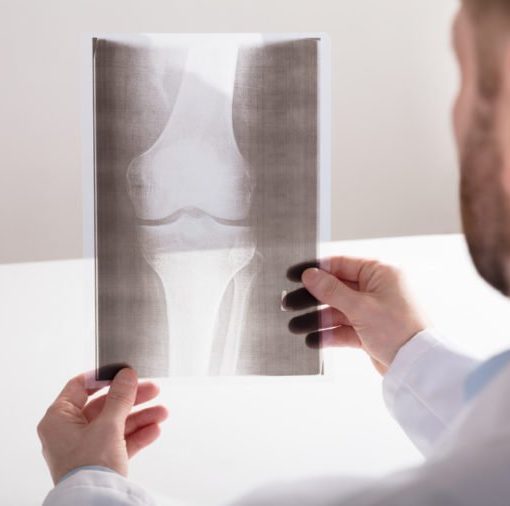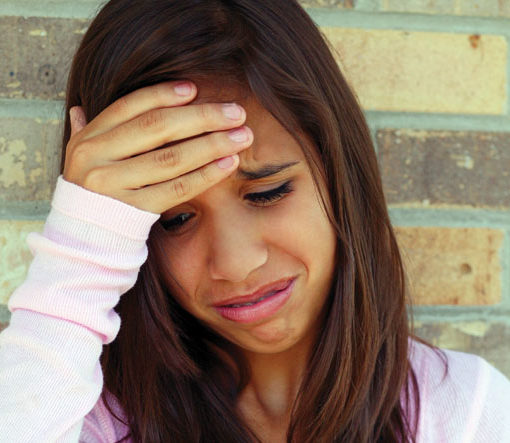Today is Rowan’s Law Day, September 25th! Are you wondering what this means? It means that there will be stricter guidelines to ensure our children’s safety in sport when it comes to head injuries and concussions.
As a mother of 4, I am so pleased to see that the government and organized sports programs are taking this type of injury seriously. This year all four of my kids had baseline concussion testing done. This means that they run a test when you are feeling well and have no recent injuries. The test is meant to be used if they do get a concussion, so they can compare the baseline results with the results after a concussion.
My one son, Wes, plays hockey very competitively, and I love watching him play. What I don’t love, is watching him take a nasty hit (at the age of 11) and falling to the ice and having a hard time getting back up. This happened to him last year. It was the third period of a home game, he plays defence, and was guarding his zone. He was skating towards the puck and a player from the opposing team deliberately hit him from behind and took his feet out from under him. He went down and took a few seconds to get up. This is not like Wes as he usually bounces up and continues to play. He took himself off the shift and went to sit on the bench. I could see from across the arena that he was shaking his head like he wasn’t able to clear his head or something was wrong. Luckily his coaching staff is excellent and they made him sit for the last few minutes.
After the game was done and all the kids were changed and ready to leave, my son came over and told me the details of what happened and how he was feeling. He said he had a sore neck and a bit of a headache. I had a discussion with the coach and trainer and was informed that they checked him out, and that he didn’t actually hit his head on the ice so maybe he was just shaken up. Being a Naturopathic Doctor I am always cautious about injuries and read into exactly what my kids are saying. Wes isn’t one to complain, so I kept a close eye on him and went home. Over the next two hours, Wes continued to complain of head pain and now some blurred vision, and then an hour later started vomiting. I was luckily able to get him in to see the doctor, he asked Wes a few questions, like to repeat a few words and what day and month it was. he diagnosed him with a minor concussion and told him to ‘take it easy’.
My kids doctor is fine and all but I wasn’t so impressed with this treatment plan. What did ‘take it easy’ exactly mean? Earlier in the season Wes had done baseline testing at another clinic with a physiotherapist, so I called them immediately and got him in the next day. The physio did a VERY thorough assessment, and luckily was able to compare his results with his baseline test scores. What I was told was that he had a moderate concussion and that it was from whiplash and not an actual blow to the head. He gave me detailed guidelines of what he could and could not do and signs to look for.
Wes didn’t go to school for weeks, he tried after a week and found that he was overwhelmed just sitting in class. He was overly emotional and crying at the slightest things. He continued to have nausea, headaches and dizziness. It slowly started decreasing, but upon reassessment by the physio, he was still not testing high enough to even be considered a mild concussion. I guess we were lucky because this all occurred close to Christmas, so the kids had some time off and so did the hockey season ( not that I was super concerned about getting him back on the ice too early). After 4 weeks the physio assessed him to go back to school slowly, a class or two a day and then after another week he was able to skate, a little. The whole process took almost 2 months, for a concussion where his head didn’t actually hit the ice! I was so happy that I had someone so thoroughly trained in concussion management to help us ease him back into the real world.
Ironically, just a few months before I had taken a course at a conference all about the changes to concussion management with dietary and nutrient support. Numerous factors play a role in causing the symptoms of a concussion but changes in metabolism and cellular function of injured brain cells are a pivotal part. Diet and nutrition may be able to reduce neuro-inflammation and nerve damage as a result of a concussion.
Along with the suggestions made by his concussion management physio, I implemented a ‘brain support’ diet for him. He’s already a ‘skinny strong’ kid so I was a bit concerned because research shows that a calorie reduced diet can be important for concussion support. Essentially he needed to be on a modified keto/paleo diet to help his brain recover and reduce neuro-inflammation. We tried our best, and I implemented a bunch of supplements to mimic this same action with the use of healthy fats.
As I have been seeing patients with anxiety, autism, ADHD and Alzheimer’s for years, this was right up my alley, as all of these conditions need major brain support. So implementing what I already knew and adding complementary research about Traumatic Brain Injuries we came up with a plan that I currently use for many of my concussion patients.
There are so many beneficial therapies out there for concussions that are ‘outside of the box’ like vision therapy, that can be a great adjunct to what you’re currently doing. Usually rest and sleep are two of the major suggestions, but I feel strongly that diet and nutrition should be right up there with it. You have to eat anyways, why wouldn’t you eat the foods that will heal your brain and not harm it!
Since I feel so strongly that nutrition can improve your brain health, I am giving you a FREE 1 week concussion diet meal plan for you to start using immediately. Click HERE for your free meal plan.
A concussion can happen to anyone – anywhere – including:
- at home, school or your workplace
- following a car, bike or pedestrian accident
- from participating in games, sports or other physical activity
There are many signs and symptoms of a concussion to look out for, including:
- headache
- dizziness
- ringing in the ears
- memory loss
- nausea
- light sensitivity
- drowsiness
- depression
If you notice signs of a concussion in others, or experience any of these symptoms yourself, consult with a physician or nurse practitioner immediately.
Support brain health in your child and community. Support Rowan’s Law, and get yourself and your family baseline tested.
Yours in Health,
Dr. Danielle ND





